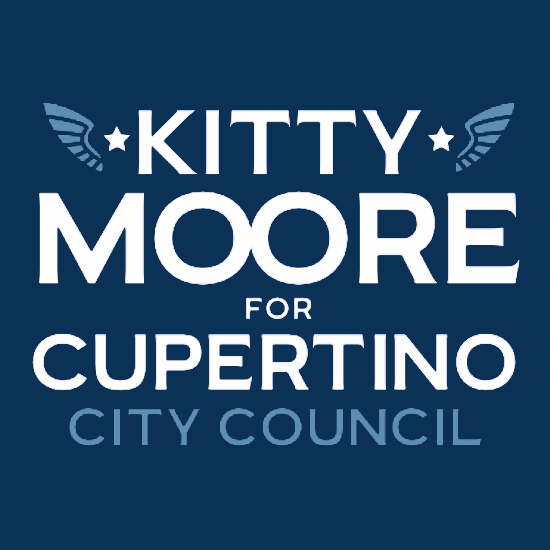Prop 15 Discussion by City Council
Updated October 15, 2020: My position has changed to opposed, not to the philosophy, but the mechanism.
My take on Prop 15 as of October 15, 2020:
Tax Assessor Larry Stone opposed Prop 15. While it would bring $9.3 M to CUSD, the triple net pass through to businesses leasing properties along with the very ambiguous “market rate” reassessment makes the effects of this law suspect. Getting the assessed values back in line for commercial property does need to happen, I think the vast majority sees this problem and agrees it needs fixing, however moving to market rate does not appear to be equitable and will be difficult procedurally.
City Council Discussion:
Item 20 of the July 21, 2020 Cupertino City Council meeting was a discussion on Prop 15. CUSD would ultimately receive $9.3 M annually from this property measure according to the presentation to City Council at 1:48. The City Council voted 4-0-1 (abstain) to support Prop. 15. The Cupertino Chamber of Commerce opposes Prop. 15 Prop. 15 would require commercial properties valued at over $3 Million to be taxed at their current market value.
The Cupertino City Council agenda item and links to the reports are here:
ORDINANCES AND ACTION ITEMS
20. Subject: Resolution supporting statewide measure Proposition 15, which increases funding for public schools, community colleges and local government services by changing tax assessment of commercial and industrial property through an initiative constitutional amendment on the November 3, 2020 ballot. Recommended Action: Adopt the Resolution No. 20-102 supporting Proposition 15, which increases funding for public schools, community colleges and local government services by changing tax assessment of commercial and industrial property through an initiative constitutional amendment.
B - Initiative: The California Schools and Local Communities Funding Act of 2020
Here is a television news report on Prop. 15 discussing both sides: https://losangeles.cbslocal.com/video/4708723-election-2020-opinions-remain-on-pros-cons-of-california-prop-15/
And here is a news article explaining how commercial property owners have been able to avoid the reassessments residential owners have experienced, which appears to be at the root of the swap from commercial property owners paying 60% of the property taxes when Prop. 13 was enacted, to now only paying 40% of the property tax collected while residential properties account for 60% of the property taxes. The argument goes that both should have increased without the disparity change. Additionally, the swap in who is paying the lion’s share indicates that commercial property owners have been enjoying a discount for many years.
Among the seismic shifts Prop. 13 caused in California’s revenue streams was the creation of a structure that allows big commercial properties to evade reassessment to higher tax rates even as land values go up.
According to a policy brief published in 2018 by the Make It Fair coalition, oil giant Chevron saves $100 million or more annually on its property taxes because its statewide properties, which include gas stations, oil fields and refineries, go unassessed or underassessed. The coalition’s brief was based on analysis by the University of Southern California’s Program for Environmental and Regional Equity (PERE).
It’s far different for homeowners. While a typical buyer-to-seller home sale transaction triggers reassessment and the new residential property owners pay a tax that is adjusted to present market prices, commercial property can go years without taxes being reassessed.
That’s because of the many ways commercial and industrial properties can change hands (e.g., real estate investment trust transactions; private equity buyouts; corporate purchases of companies; publicly traded stock sales; bank mergers) in which no straightforward change of name appears on the deed your local county tax assessor would note.
Furthermore, if commercial land sits idle for years with no construction or other changes on it to trigger tax reassessment to reflect current market value, the property tax rate stays the same.
In Los Angeles County, 57 percent of industrial and commercial properties haven’t been reassessed for two decades. Meanwhile, the county’s tax burden has shifted toward homeowners. In 2017, commercial property represented 29 percent of assessed tax value; residential properties represented 71 percent, according to PERE research.
source: https://prospect.org/politics/11-billion-question-will-californians-raise-commercial-property-taxes/
Commercial property owners could complain about the increase in their property taxes, but that would be because they have enjoyed an increase in their property values, coupled with additional strategies to avoid paying anything near what would be equitable. The 60/40 to 40/60 change in who is paying the property taxes makes this clear that commercial property owners found a way to avoid reassessments. For community members concerned about the future of CUSD, Prop. 15 would provide a $9.3 Million infusion of capital to the district, when March 2020’s failed Measure O parcel tax would have only provided a little over $4 Million. As stated above, while I agree with the rationale of Prop 15, moving the commercial properties to market rate does not appear to be an equitable solution.

